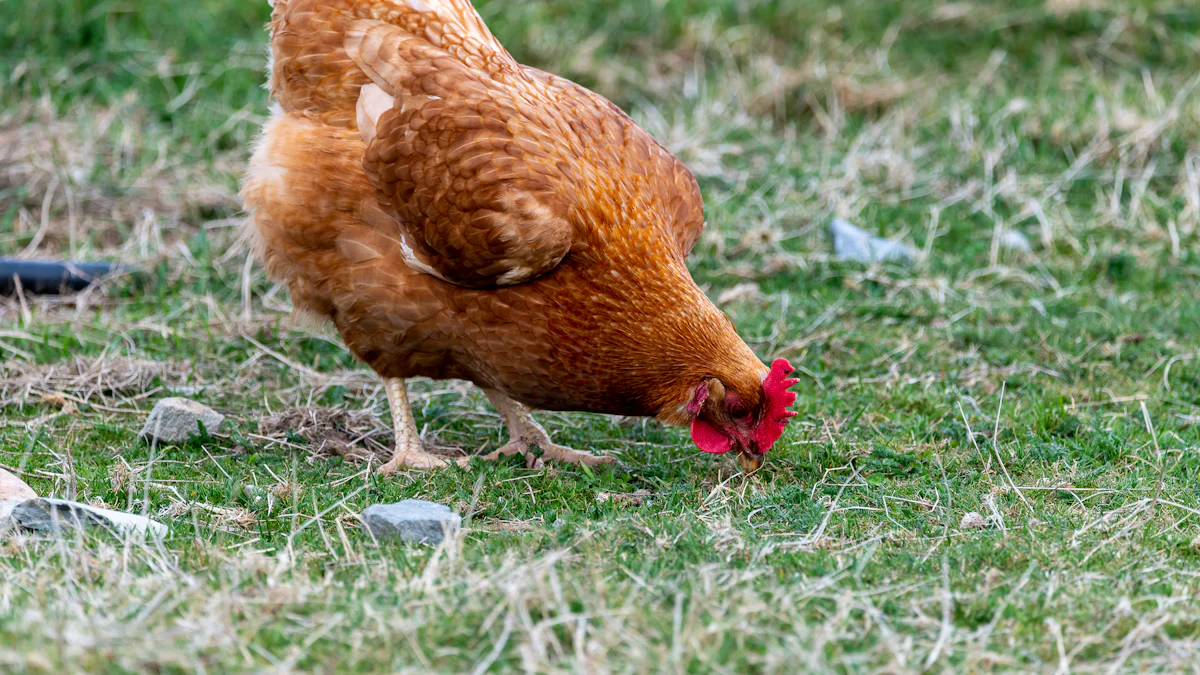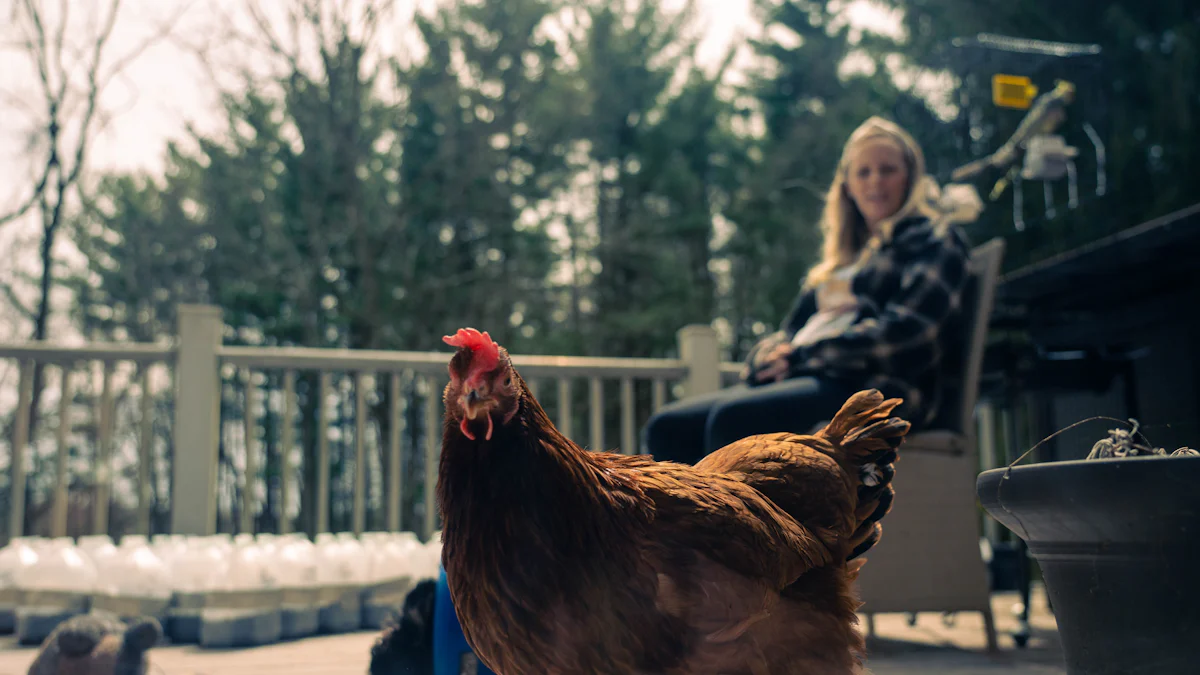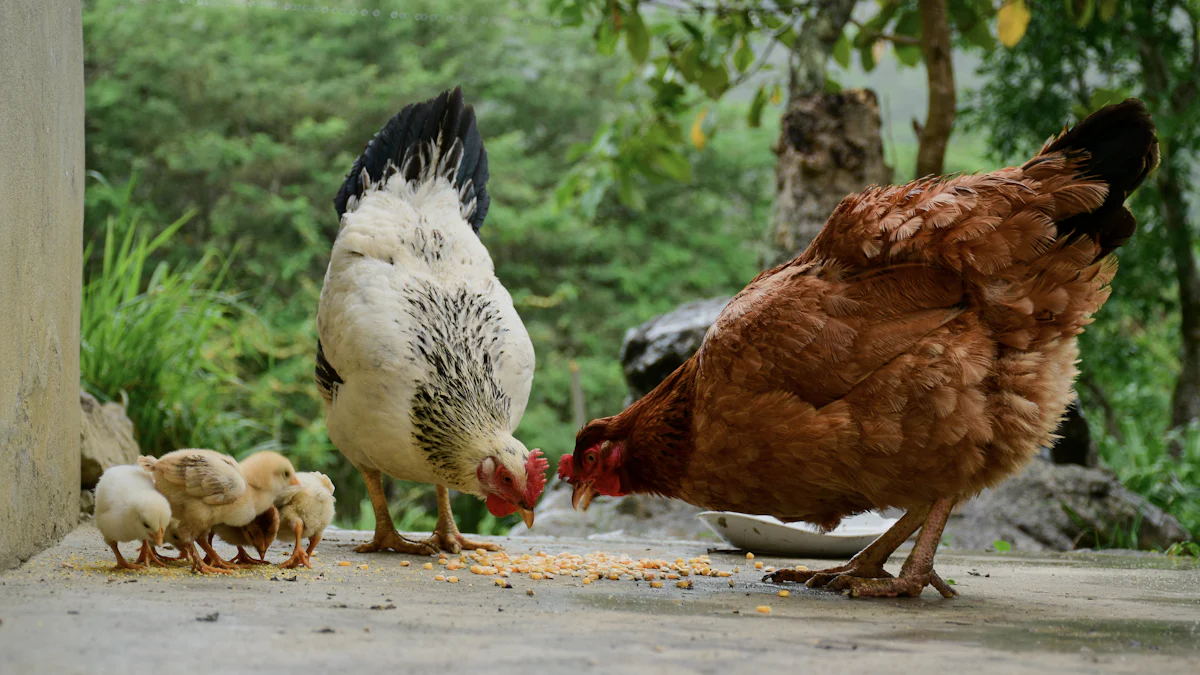
Chickens love treats, and Happy Hen Mealworms are one of the best you can offer. Packed with 53% protein, these mealworms give your flock the nutrients they need to thrive. They help boost egg production, improve overall health, and keep your chickens active and happy. Feeding them properly ensures your chickens get the most out of this nutritious snack. Whether you’re raising hens for eggs or just enjoy their company, adding mealworms to their diet can make a noticeable difference in their well-being.
Key Takeaways
- Happy Hen Mealworms are a high-quality protein source, containing 53% protein, essential for your chickens’ muscle development and overall health.
- Incorporating mealworms into your hens’ diet can significantly boost egg production, leading to healthier eggs with strong shells and rich yolks.
- Feeding mealworms enhances your chickens’ happiness and well-being by encouraging natural behaviors and reducing stress.
- Maintain portion control by limiting mealworms to no more than 10% of your chickens’ daily diet to prevent nutritional imbalances.
- Introduce mealworms gradually to your flock, starting with small amounts to ensure they adapt without overwhelming their diet.
- Store mealworms properly in a cool, dry place to maintain their quality and prevent spoilage, ensuring your chickens receive the best treat.
- Tailor mealworm portions to individual chicken needs, considering factors like age and health to support the well-being of your entire flock.
Benefits of Feeding Happy Hen Mealworms

High-Quality Protein Source
Your chickens need protein to stay healthy and active. Happy Hen Mealworms provide an excellent source of high-quality protein, with a whopping 53% protein content. This makes them a perfect supplement to your flock’s regular feed. Protein plays a key role in muscle development, feather growth, and overall energy levels. By adding mealworms to their diet, you’re giving your chickens the fuel they need to thrive. Whether they’re scratching around the yard or roosting at night, this protein boost keeps them strong and lively.
Improved Egg Production
If you’re raising hens for eggs, you know how important nutrition is for consistent egg production. Happy Hen Mealworms can help improve the quality and quantity of eggs your chickens lay. The high protein content supports the development of strong eggshells and rich yolks. When your hens get the right nutrients, they produce healthier eggs that are more nutritious for you and your family. Adding mealworms to their diet ensures your hens stay productive and happy.
Boosts Chicken Health and Happiness
A healthy chicken is a happy chicken. Feeding your flock Happy Hen Mealworms not only improves their physical health but also boosts their mood. Chickens love the taste and texture of mealworms, making them an irresistible treat. Offering mealworms encourages natural behaviors like foraging and pecking, which keep your chickens mentally stimulated. A happy flock is less likely to experience stress or boredom, leading to better overall well-being. When you see your chickens eagerly enjoying their mealworms, you’ll know you’re doing something right.
How to Feed Mealworms Effectively
Portion Sizes and Frequency
Feeding your chickens the right amount of mealworms is essential for their health. Mealworms should make up no more than 10% of your flock’s daily diet. This ensures they still get the nutrients they need from their regular feed. A handful of mealworms per day is usually enough for a small flock. For larger flocks, adjust the portion size so each chicken gets a fair share. Overfeeding can lead to imbalances in their diet, so stick to moderation. Consistency is key. Offer mealworms as a treat a few times a week rather than every day to keep your chickens excited about them.
Mixing Mealworms with Other Feed
Combining mealworms with your chickens’ regular feed can make their meals more nutritious and enjoyable. Sprinkle mealworms over their pellets or crumble to encourage them to eat everything in their dish. This method works especially well for picky eaters. You can also mix mealworms with fresh greens or grains to create a balanced snack. By blending mealworms with other foods, you ensure your chickens get a variety of nutrients in every bite. This approach also helps prevent them from becoming overly reliant on mealworms alone.
Seasonal Considerations
Your chickens’ needs change with the seasons, and so should the way you feed them mealworms. In colder months, chickens require more energy to stay warm. Mealworms, with their high protein content, provide an excellent energy boost during winter. Offer them slightly more mealworms during this time to support their health. In warmer months, stick to smaller portions to avoid overfeeding. Always observe your flock’s behavior and adjust the amount based on their activity levels and overall condition. Seasonal feeding ensures your chickens stay healthy and happy year-round.
Tips for Introducing Mealworms to Chickens

Gradual Introduction
Introducing mealworms to your chickens for the first time requires patience. Start by offering a small amount, like a few mealworms, to gauge their interest. Scatter them on the ground or place them in a familiar feeder. Chickens are naturally curious, so they’ll likely peck at the mealworms out of curiosity. If they seem hesitant, try mixing the mealworms with their regular feed. This helps them associate the new treat with something they already enjoy. Gradually increase the amount over a week or two as they become more comfortable with the addition. A slow introduction ensures your chickens adjust well without overwhelming their diet.
Observing Chicken Behavior
Pay close attention to how your chickens react when you introduce mealworms. Watch for signs of excitement, such as clucking or running toward the treat. These behaviors show they’re enjoying the mealworms. However, keep an eye out for any chickens that might be reluctant to try them. Some may need more time to warm up to the new snack. Also, monitor their overall health and activity levels. If you notice any changes, like reduced appetite for their regular feed, adjust the portion size of mealworms. Observing your flock helps you ensure every chicken benefits from this nutritious treat.
Common Mistakes to Avoid
Overfeeding Mealworms
Giving your chickens too many mealworms might seem like a way to spoil them, but it can actually harm their health. Mealworms should only make up about 10% of their daily diet. Overfeeding can lead to an unbalanced diet, causing your chickens to miss out on essential nutrients from their regular feed. Too much protein can also strain their kidneys over time. Stick to small portions and offer mealworms as an occasional treat. A handful for a small flock is plenty. Moderation ensures your chickens stay healthy while still enjoying their favorite snack.
Improper Storage
Storing mealworms the wrong way can reduce their quality and even make them unsafe for your chickens. Dried mealworms need to be kept in a cool, dry place to stay fresh. Exposure to moisture can cause mold, which is harmful to your flock. Always seal the bag or container tightly after each use. If you buy mealworms in bulk, consider dividing them into smaller portions and storing them in airtight containers. Proper storage keeps the mealworms fresh and nutritious, ensuring your chickens get the best quality treat every time.
Ignoring Individual Chicken Needs
Not all chickens have the same dietary needs. Younger chickens, older hens, and those recovering from illness may require different amounts of protein. Pay attention to each chicken in your flock. Some may need more mealworms for extra energy, while others might do better with fewer treats. Watch for signs like changes in weight, feather condition, or egg production. Adjust the portion sizes based on their individual needs. By tailoring the amount of mealworms to each chicken, you’ll help your entire flock thrive.
Feeding Happy Hen Mealworms to your chickens brings incredible benefits. You’ll notice healthier, more active birds, improved egg production, and a happier flock overall. Using proper feeding techniques, like portion control and gradual introduction, ensures your chickens get the most out of this treat. Avoiding common mistakes, such as overfeeding or improper storage, keeps your flock thriving. Why not give it a try? Treat your chickens to Happy Hen Mealworms and see the difference in their health and happiness. Your flock will thank you with their energy and productivity!


